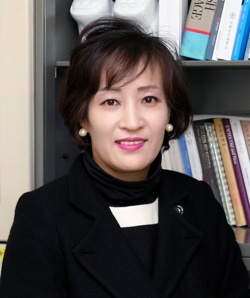
(Korean Language and Literature)
“What walks on four feet in the morning, two in the afternoon and three at night?” This is the riddle Sphinx gave to Oedipus. As well-known, the answer is human. As an infant, he crawls on all fours; as an adult, he walks on two legs; in old age, he uses a “walking” stick.
However, what difference would there be if we answer this as “Me, myself,” instead of “man?” One of the many possible answers is that if “man” can be said as an abstract and general theory, “Me, myself” can be said as specific theory.
“Arts of Living,” which was published in 2003, criticizes academic and abstract humanities. At the same time, it emphasized humanities as practice that has something to do with ourselves in our daily specific life. Humanities lectures for chief executive officers and the homeless and “The School of Life Book Series,” which are popular these days, can be some examples of this kind of humanities. If we only see the trend, it does not seem like humanities is in danger.
However, if we see the book “Ssaunen Inmoonhak,” which means humanities in struggle, today’s popular humanities is more like a tool of practical and worldly use. This means that humanities functions as “a hidden tip of how a businessman makes money” and takes the role of Capitalism’s alibi.
What is of particular concern is the support for humanities. Support for humanities only covers 3.8 percent of the total Research and Development investment. Korean Humanities Association proposed “National Institute of Humanities” to the Accepting Committee, but it may sound like a “talk-and-mighty” suggestion in society with an unstable economy like today’s.
However, just as a tragedy can be a comedy if repeated, a repeated mistake becomes a limit. So does the future. The future will be no different from the present if the present is repeated. If insufficient support for humanities is repeated in the new government, “hungry” humanities will die twice: once by the mistake of the present, and twice by the limit of the future.
If we define the future as time “before” the faraway future, only those who see further can create a better future. Oedipus admitted his blindness by plunging pins into his eyes and making them blind. However, it is possible that he saw things that he could not before. As Oedipus’s example shows, humanities can be the “eyes of heart” which can better show what science cannot show. We can “see” if we believe what we cannot see. Without belief, there is no future for humanities.
According to PSY, the world-renowned singer, “Gangnam Style” means somebody who “seems prim and proper” but “goes completely crazy when the time comes.” Will it seem like interpreting it to my own advantage if I interpret the lyrics as the support to “Humanities Style” that prefers heart to body, criticism to obedience, and meditation to searching? Will it be too unrealistic to believe that valuing humanities is “some kind of twist” and a “know-it-all” kind of true “Science Style?”
* Professor Kim Mi-Hyun has a master’s degree and a doctoral degree from Ewha Womans University, and also is the Associate Vice President for the Office of University Planning and Coordination.

